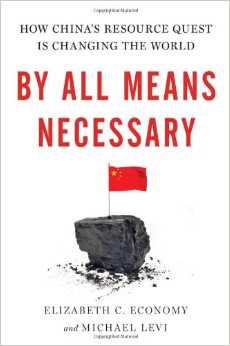
The Motley Fool's energy bureau chief, Joel South, recently spoke with Michael Levi about his new book, By All Means Necessary: How China's Resource Quest Is Changing the World, coauthored with Elizabeth Economy. As the David M. Rubenstein senior fellow for energy and environment at the Council on Foreign Relations, Levi is no stranger to the impact that countries and their decisions have on the rest of the world. In fact, Levi also writes a blog for the CFR, Energy, Security, and Climate, where he discusses the relationship between energy, the world, and its inhabitants. In By All Means Necessary, Levi analyzes the impacts and effects China's resource hunt has on the world and international affairs, specifically looking at the synthesis of economics, security, and politics.
In the fifth part of this 10-part interview, Joel South asks Michael Levi about his new interest in the iron ore industry. Levi explains that his research for By All Means Necessary unearthed some unexpected characteristics and approaches in the Chinese iron ore market.
A transcript follows the video.
Joel South: I heard in a recent interview that you did, when you were researching for this book, the iron ore industry in China was one of the most fascinating parts. What did you find there that was so interesting?
Michael Levi: It's always a shock. I still can't believe that I found the iron ore industry interesting!
But we think of China as entering commodities markets and trying to steer them away from flexible, free transactions, and toward opaque, political structures -- and what happened in the iron ore world was the opposite.
The iron ore trade is oligopolistic -- a small set of sellers -- and for a long time they negotiated directly with the biggest buyer, and then everyone else took that price and it stuck for the next year, and then you went back and revised it each year.
An influx of small Chinese mills undermined that entire system. They went off doing their own transactions, and as a result you saw the emergence of a spot market that made the iron ore trade a lot more liberal and flexible than before.
What's striking there is that the combination of China's sheer size, with the surprising fact that the Chinese government does not control all of its economic players nearly as tightly as most people in the outside world assume, resulted in an outcome that is completely different from what most casual observers of China would expect.





